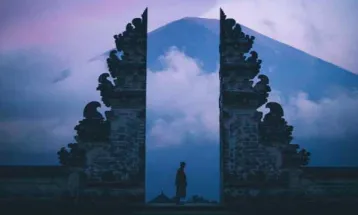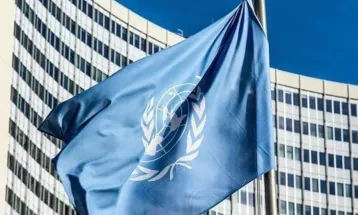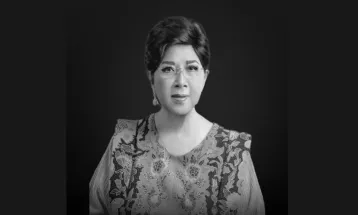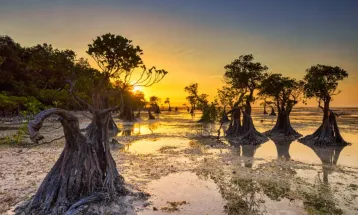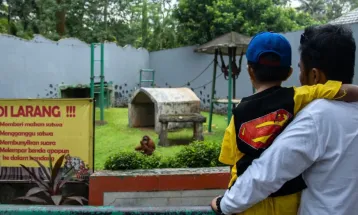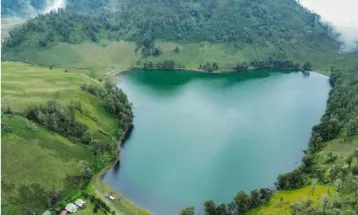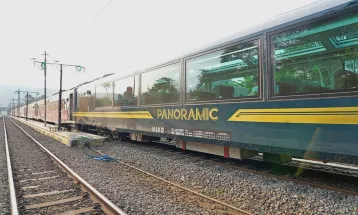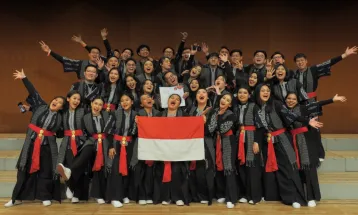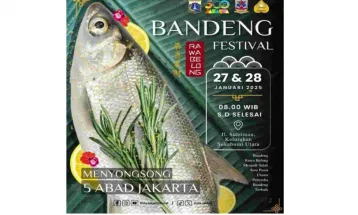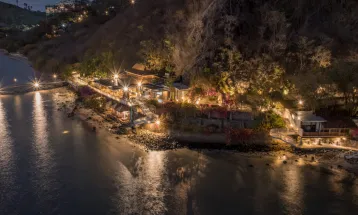History of Warteg: Tegal-Originated Eatery, a Favorite of Jakarta Workers During the Old Order Era
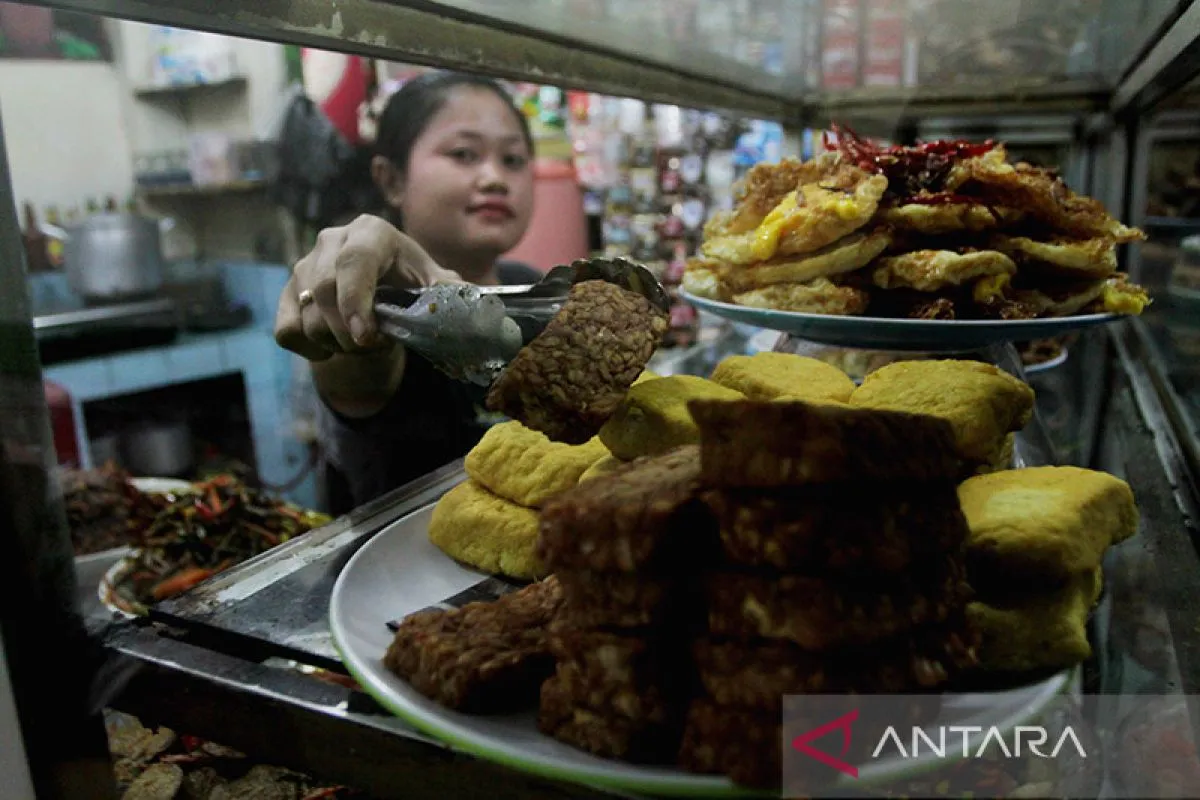
SEAToday.com, Jakarta - It's a common misconception that the cost of living in Jakarta is exorbitant. Housing, transportation, and food alone can quickly drain a monthly salary. However, this isn't entirely accurate. For those seeking a livelihood in Jakarta, there are always ways to manage expenses.
Take food, for instance. Warung Tegal (Warteg) has long been a lifesaver for those on a budget. The food is affordable and diverse, a tradition that has persisted since the Japanese occupation and throughout Indonesia's independence. Run primarily by migrants from Tegal, these eateries have become a favorite for many.
Jakarta's allure has been unmatched in the Nusantara. Once known as Batavia, it was the center of the Dutch East India Company (VOC) and later, the Dutch colonial government.
This prominence led to concentrated development in Batavia. The city was considered superior in every way, offering numerous job opportunities and amenities. Word of mouth spread, encouraging people from all over the archipelago to seek their fortune in Batavia.
"By 1940, Batavia had many schools, hospitals, clinics, and entertainment venues like cinemas and swimming pools. At a glance, Westernization seemed widespread, with many residents able to obtain a Western education, consult doctors, and watch the latest European and American films," wrote Susan Blackburn in her book, "Jakarta: Sejarah 400 Tahun" (Jakarta: A 400-Year History) (2012).
The pursuit of a better life in Jakarta was widespread. Those who migrated to Batavia were almost certain to improve their circumstances and achieve stability. People from various ethnic groups arrived with hopes of a new beginning.
The Rise of Warteg
Migrants from various regions of the Nusantara flocked to Batavia in search of better opportunities and a new life. Among these migrants were many from Tegal, particularly from the villages of Cabawan, Sidakaton, Kraton, and Sidapurna.
Upon arriving in Batavia, these migrants took on various jobs. The men often worked in manual labor, as construction workers or laborers. Their wives, to supplement the family income, would open small eateries.
This trend became particularly noticeable during the Japanese occupation of Indonesia. Tegalese migrants began establishing small eateries that would later become known as "warteg" in Batavia, which was renamed Jakarta. The affordable prices of the food served in these wartegs made them immensely popular.
Wartegs provided a lifeline for many people struggling to make ends meet. With the economic hardships faced by Indonesians at the time, the affordable and filling meals offered by wartegs were a godsend. The success of these early warteg owners encouraged more Tegalese to open their own establishments.
After Indonesia gained independence, wartegs began to spread to other parts of the country. They were seen as a symbol of resilience and adaptability. In the economically challenging post-independence period, wartegs provided a reliable and affordable source of food for many Indonesians.
As a magazine article from Tempo in 1983 noted, "Warno (one of the pioneering warteg owners) often reminisced about the heyday of his business in the 1950s. He could sell up to a quintal of fried cassava a day. Thanks to his success, he was able to send one of his children to university, who later became a prominent figure in the warteg industry."
Most warteg owners of that era were not interested in long-term business ventures. Once they had accumulated enough wealth, they would often return to their home villages. Jakarta, for them, was merely a place to earn a living, not a permanent home.
Jakarta's Boom, Warteg's Bloom
The popularity of wartegs surged during the Sukarno era and the Old Order period, when Jakarta underwent significant development. The city's transformation was particularly accelerated in preparation for the 1962 Asian Games. Sukarno was determined to showcase Indonesia on the world stage.
To achieve this, Sukarno initiated the construction of a grand sports complex, which later became known as the Gelora Bung Karno Sports Complex. He also planned to build luxury hotels and other monumental structures.
To fund these ambitious projects, Sukarno sought assistance from his friend, Soviet leader Nikita Khrushchev. Sukarno explained that the sports complex was not only for the Asian Games but also served as a platform to connect with the people. As Khrushchev noted in his memoirs, "Among the leaders of states, I know that Sukarno stood out in his ability to mobilize public support. Sukarno could not be compared with Jawaharlal Nehru. In general, Sukarno liked to gather large crowds. He needed a large audience, and thus he needed a big stage, and that was the stadium, which we eventually built."
With a soft loan from the Soviet Union, construction projects began in earnest, attracting a large influx of workers, primarily from Central Java, especially Tegal. These workers often brought their families to Jakarta. While the men worked as construction laborers, the women opened small eateries, or wartegs, to support their families.
The strategic location of these wartegs near construction sites proved to be profitable. Many workers relied on wartegs for their daily meals. Gradually, wartegs became synonymous with affordable and convenient meals for Jakarta's working class. Warteg owners began to display their dishes in glass cases to attract customers.
By 1982, the number of wartegs in Jakarta had reached 10,000, leading to the formation of the Warteg Cooperative (Kowarteg). This marked a significant milestone in the growth and organization of the warteg industry. Today, wartegs remain a ubiquitous and beloved part of Jakarta's culinary landscape.
Recommended Article
Explore Nusantara
How to Get to Ragunan Zoo Using KRL, Transjakarta, and LRT
Ragunan Zoo is one of the most visited tourist destinations in Jakarta.
Exploring the Harmonious Culture of the Mentawai Tribe: The Oldes...
Known for its rich culture and unique traditions, one of the most interesting things about the Mentawai tribe is their traditional tattoo art, called TikTik.
Mount Semeru Shuts Down for Climbers Until January 16
The Bromo Tengger Semeru National Park (TNBTS) decided to temporarily close the Mount Semeru climbing route on January 2-16, 2025.
KAI Wisata Introduces Panoramic Train on Mutiara Timur Route
Starting December 24, 2024, PT Kereta Api Pariwisata (KAI Wisata) launches the Panoramic Train as part of the Mutiara Timur service.
Trending Topic
Popular Post
NewJeans Will Debut at Billboard Music Awards 2023
South Korean girl group NewJeans will perform at the 2023 Billboard Music Awards on November 19.
Golden Disc Awards 2024 Will be Held in Jakarta, Here are The Tic...
The 2024 Golden Disc Awards (GDA) will be held at the Jakarta International Stadium (JIS) on January 6.
PARAMABIRA, BINUS University Choir Wins International Competition...
PARAMABIRA secured victory setting the record for the highest score ever recorded in the Sing'N'Pray Kobe competition.
NewJeans Wins Top Global K-pop Artist Award at 2023 Billboard Mus...
NewJeans also won the new Top Global K-pop Artist Award. They won over Stray Kids, TOMORROW X TOGETHER, TWICE, and Jimin of BTS.
NCT 127 Concert Tickets "NEO CITY: JAKARTA - THE UNITY" On Sale S...
K-Pop boy group NCT 127 will hold a concert titled NCT 127 3RD TOUR "NEO CITY: JAKARTA - THE UNITY", which will be held at Indonesia.
Wonderful Indonesia
Get Ready for the Fun! Rawa Belong Milkfish (Bandeng) Festival Re...
Visitors can expect a feast for the senses, featuring a variety of traditional Betawi performances such as the fascinating milkfish deboning demo, energetic Betawi dances, and lively gambang kromong and palang pintu musi...
Mount Rinjani to Implement Zero Waste Policy Starting April 2025
The Mount Rinjani National Park Authority (TNGR) in Lombok, West Nusa Tenggara, will implement a "zero waste".
Plataran Komodo Indonesia Named 'Best for Romance' at 2025 Condé...
Plataran Komodo is the only resort in Indonesia to win the award, beating out countries with the best hospitality industries in the world, such as the Maldives, Thailand, Australia, and Japan.
Top 10 Beaches You Can’t Miss in 2024, Indonesia’s Pink Beach Inc...
Indonesia's Pink Beach, also known as Tangsi Beach, has secured the seventh spot on this list. Its striking pink sand makes it a visually stunning destination and a popular spot for photography.





